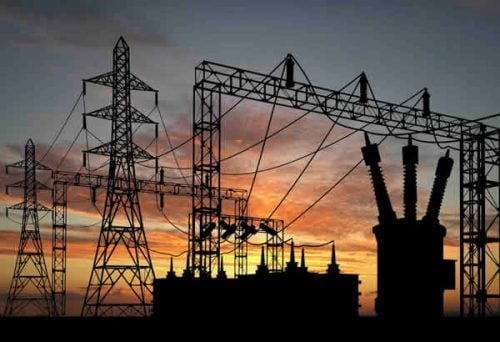Nigeria’s Electricity Firms Lose ₦2.31tn to Unutilised Power in 12 Years

Power-generation companies across Nigeria have lost about ₦2.31 trillion to stranded electricity over the past 12 years, despite the nation’s persistent energy shortage.
The figure, released by the Association of Power Generation Companies (APGC), represents the cumulative value of power that could have been delivered to consumers between 2013 and September 2025 but was left unutilised due to grid bottlenecks and operational constraints.
APGC Managing Director and Chief Executive Officer, Dr Joy Ogaji, disclosed the figures at the association’s 20th-anniversary, citing data from the National Control Centre.
She described the losses as a reflection of the “deep structural inefficiency” that continues to cripple the country’s electricity market.
“All this power that is stranded, that is not being used, has a capacity charge attached to it, and that is what this data captures,” Ogaji explained. “What the GenCos are asking the government to pay now doesn’t even include this. What we are owed is only for energy, not capacity.”
According to her, the market forfeited ₦119 billion between January and September 2025 alone, as an average of 2,221.99 megawatts of power could not be evacuated from plants to end users.
During that period, Nigeria’s available generation capacity stood at 6,806.63 MW, but only about 4,637.72 MW reached consumers—leaving nearly one-third of potential supply idle.
The highest losses this year were recorded in August (₦20.17 billion), followed by September (₦16.86 billion) and July (₦15.77 billion).
Historical data showed that stranded power and unpaid capacity charges have plagued the market since the privatisation of the Power Holding Company of Nigeria in 2013.
In 2016 alone, 3,828 MW—more than half of available generation—was wasted, resulting in ₦273.32 billion in lost payments, the worst year on record.
Losses persisted in subsequent years, ranging from ₦214.93 billion in 2015 to ₦266.10 billion in 2020. Although the figures dropped slightly from 2021, the cumulative toll over twelve years has reached an estimated ₦2.31 trillion.
Ogaji said the non-utilisation of available capacity has weakened the financial viability of power firms and discouraged investment in the sector.
“The non-payment of capacity charges undermines the bankability of GenCos. Without a sustainable payment mechanism, it will be impossible to finance major maintenance or expand the total national supply,” she said.
She explained that when the Nigerian Bulk Electricity Trading Plc (NBET) became the market operator, regular capacity payments stopped, even though GenCos had expanded generation and maintained their plants as agreed under the privatisation contracts.
“At the beginning, GenCos were paid capacity charges. But once NBET was introduced, the payment story changed. That’s when we started hearing story upon story, and capacity payments became irregular,” she stated.
Nigeria’s Minister of Power, Adebayo Adelabu, recently confirmed that more than 10 gigawatts of generation capacity remain idle nationwide despite widespread power shortages.
He described the situation as “wasteful,” noting that the problem lies not in generation but in transmission and distribution.
“In Nigeria today, we have over 10 gigawatts of stranded generation capacity. Generation will not be our immediate problem today, but stable transmission and effective distribution,” he said.
The APGC warned that the economic impact of such inefficiencies is far-reaching.
According to the association, every one per cent increase in power supply could raise Nigeria’s Gross Domestic Product by nearly 4 per cent.
It estimated that if even half of the stranded 2,000–3,000 MW had been delivered consistently, the country could have achieved up to 12 per cent additional GDP growth over the past decade.
“Electricity drives industrialisation and employment. Nigeria cannot achieve economic expansion when power plants sit idle,” Ogaji emphasised.
To address the recurring losses, the APGC urged the Federal Government to honour all contractual obligations under the power purchase agreements, strengthen transmission and distribution networks, guarantee full payment of GenCos’ invoices, and promote investment in gas supply and grid expansion.
The group also recommended the introduction of bilateral contracts, off-grid alternatives, and targeted grid upgrades to optimise power evacuation and ensure more reliable electricity for homes and industries.









